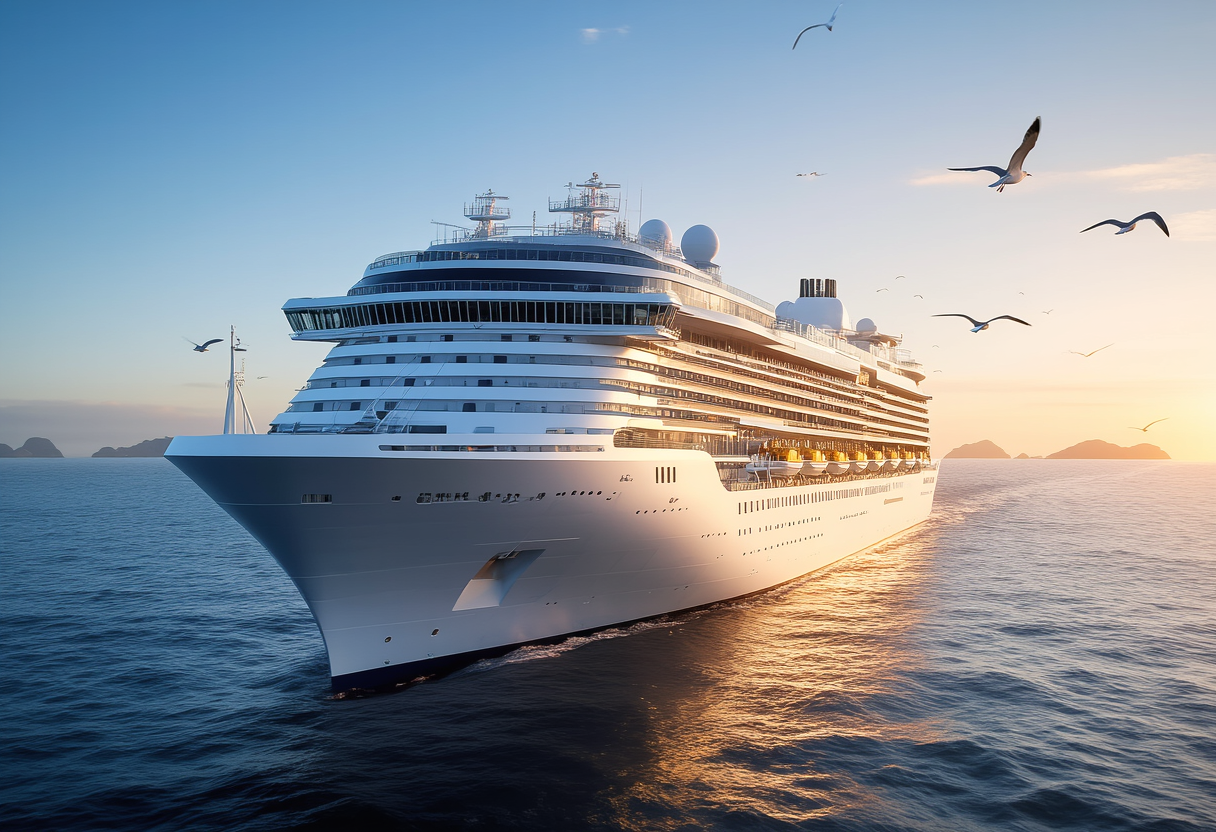The Future of Cruise Tourism: How It’s Adapting to Changing Trends
Cruise tourism is evolving rapidly, driven by shifting consumer preferences and environmental concerns. This article explores how the industry is adapting innovations, strategies, and trends to meet the demands of modern travelers while addressing sustainability challenges and market competition.
The Evolution of Cruise Tourism in Modern Travel
Cruise tourism is a phenomenon that has taken the travel world by storm. With growing numbers of travelers opting for cruise vacations, the industry has had to evolve rapidly. What initially served singular routes and experiences has now transformed into a multifaceted adventure integrating various destinations and activities. The popularity of cruise tourism lies in its unique ability to blend relaxation and exploration, allowing travelers to visit multiple locations without the hassle of constant packing. Furthermore, cruise lines are increasingly leveraging technology to enhance the onboard experience, providing better connectivity and seamless service, which is crucial for today's tech-savvy travelers. However, as the cruise tourism industry grows, so do the challenges it faces, especially regarding environmental sustainability and capacity management. Ensuring a balance between luxury and eco-friendliness will be critical for cruise tourism's future.
The Role of Sustainability in Cruise Tourism
Sustainability has become a buzzword across various industries, including cruise tourism. As awareness of environmental issues increases, travelers are becoming more selective about their choices when it comes to vacations. Cruise lines are now adopting more sustainable practices, such as using cleaner fuels and increasing waste management efforts. By focusing on eco-friendly initiatives, cruise tourism can appeal to an audience that prioritizes environmental considerations in their travel decisions. Innovative solutions like shore power systems, which allow ships to shut down their engines while docked, are being implemented to reduce emissions. However, this shift towards sustainability is more than just about the environment; it also represents a strategic move that can help cruise companies differentiate themselves within a competitive market. Hence, how cruise tourism navigates this critical shift will likely determine its future success and appeal.
Technology and Innovation Shaping Cruise Experiences
As cruise tourism continues to adapt, technology has played a pivotal role in transforming the traveler experience. From mobile applications for easy booking to RFID technology for seamless boarding processes, these innovations enhance convenience significantly. Moreover, advancements like virtual reality previews of onboard facilities and destinations allow potential customers to experience their cruise before they even embark. This technological integration not only streamlines operations but also creates a memorable pre-cruise experience that can foster greater customer loyalty. Furthermore, data analytics is being utilized to personalize services, anticipating passengers' needs and preferences to cater to individual desires. With technology on the rise, the way cruise tourism operates and markets itself will likely be completely reshaped in the coming years.
Cultural Considerations in Cruise Tourism
One of the most significant aspects of cruise tourism is the cultural impact it leaves on both passengers and host communities. Diverse itineraries frequently introduce travelers to a variety of cultural experiences. However, it’s essential to consider the effects of increased tourism on local ecosystems and cultures. Sensitivity to culture and community when designing cruise itineraries is crucial. This can often be a double-edged sword; while cruise tourism can provide economic benefits, it can also lead to the commodification of culture and overdependence on tourism revenue in these communities. Therefore, fostering cultural understanding through thoughtful itinerary planning can enrich the experience for cruise tourists while supporting local traditions. As cultural connectivity becomes more intertwined with travel, cruise lines have a unique opportunity to champion responsible tourism practices.
The Impact of Global Events on Cruise Tourism
The global pandemic was a significant wake-up call for cruise tourism. With travel restrictions and safety concerns, this sector faced unprecedented challenges. Nevertheless, it also presented an opportunity to rethink and innovate the approach to cruise tourism. As the world reopens, cruise lines are implementing enhanced health measures and reworking itineraries to prioritize less crowded destinations. The pandemic's lessons have taught the industry about the importance of flexibility and adaptability in operations. Furthermore, market trends indicate that travelers are now more interested in domestic cruising options and shorter itineraries. Consequently, understanding and responding to shifting traveler priorities become paramount in shaping the cruise tourism experience.
The Future Outlook for Cruise Tourism
Looking ahead, the future of cruise tourism presents a unique blend of opportunities and challenges. With a commitment to sustainability, technological advancements, and consumer-centric strategies, the industry aims to create memorable experiences while navigating environmental responsibilities. New players entering the market may introduce competitive pricing and innovative offerings, which pressure established lines to adapt continually. Moreover, evolving global dynamics will influence travel trends and consumer behavior, compelling the cruise tourism sector to remain agile. Therefore, fostering collaboration and innovation within cruise tourism will be essential for capturing the emerging trends and opportunities ahead, ensuring that this vibrant mode of travel continues to thrive.
